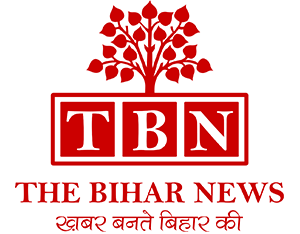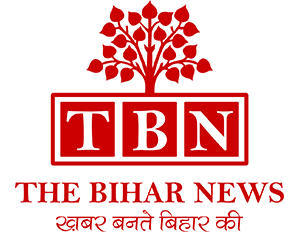The COVID-19 pandemic has deepened existing inequalities in social, political and economic systems, amplifying the impact of the pandemic for women and girls and other marginalised groups. In Bihar, the pandemic threatens to undo decades of progress in the state. To address these issues, the State Health Society, Bihar, and Population Foundation of India held a webinar on Addressing the need for sexual and reproductive health and family planning services for women’s and girls’ in Bihar during the COVID-19 pandemic and beyond.
We need to address this taboo on talking about sex and reproductive health,” says Mr. Manoj Kumar, Special Secretary Health, Bihar.
The session aimed to highlight key successes and discuss measures to sustain and scale-up improvements in reproductive health outcomes. Recent data from the National Family Health Survey (NFHS 5) 2019-20, unveils impressive progress in health, fertility and family planning-related indicators in Bihar. The decrease in Total Fertility Rate from 3.4 in 2015-16 to 3.0 in 2019-20, is significant, and the 21.1% increase in modern contraceptive use is evidence of the state’s commitment to women’s health and family planning.
While the COVID-19 pandemic did cause unprecedented difficulties across the country, and exerted immense pressure on health systems, Panchayati Raj Institutions (PRIs) and Frontline Health Workers (FLWs) were instrumental in ensuring reproductive health services were not disrupted. The panelists highlighted the need to raise awareness on women and girls needs for sexual and reproductive health services to counter the effects of the pandemic.
Mr. Manoj Kumar, Executive Director, State Health Society Bihar, cum Special Secretary Health, Government of Bihar, chaired the panel and highlighted the need to dispel stigma around reproductive health and encourage health discussions, starting at the secondary and higher secondary level education. “We need to address this taboo around talking about sex and reproductive health,” said Mr. Kumar, underscoring that, “Married women can’t speak openly to their family about contraceptive methods; they don’t feel supported. We need to bring improvements in conversations via Information and Education Communication (IEC) and improve interpersonal communication.”
He also spoke out strongly against myths and misinformation around the unchecked population growth among specific communities. Instead, he pointed out that Total Fertility Rates (TFR) were on the decline across religions and groups.
Highlighting the impact of the COVID-19 pandemic and its effect on migrant populations in Bihar, Dr. Sharad Iyengar, Chief Executive, Action Research and Training for Health and Core Committee Member, Advocating Reproductive Choices (ARC) Coalition, said, “During the lockdown, so many men came home and brought with them the worry of increasing populations. Families did not look at this as a time to increase families so the demand for family planning went up.”
To ensure that contraceptive methods are accessible to all women, Dr. Shobha Gudi, Federation of Obstetric and Gynaecological Societies of India (FOGSI), highlighted the need for well-planned and thorough information sharing. “I think that the women of Bihar must understand reproductive rights, how to delay first pregnancy, and ensuring spacing between pregnancies. She should know what she can afford and what help she can get from the government. Her family and partner must also be informed. Both through digital and print media, FOGSI will contribute to the conversation in Bihar, via mass, print or digital media.” she said.
Some suggestions on ways to do this included Comprehensive Sexuality Education (CSE) for girls and boys in school, as well as close collaborations with frontline organizations such as Panchayati Raj Institutions (PRIs). Besides using an integrated training module to engage and sensitize PRIs and other frontline workers, the focus is also on better engaging young people. “We must work with education, social welfare and health departments as well as PRIs and other bodies to bring improvements to SRH in Bihar,” said Dr Aparajita Gogoi, Executive Director, Centre for Catalysing Change.
“We need a layered communications strategy to gain adolescents’ attention and sensitize them on sexual and reproductive health (SRH). School is an important platform for having wholesome discussions, with key information disseminated by teachers. This can change thinking around SRH amongst adolescent,” Dr. Gogoi added.
Echoing her comments, Ms. Poonam Muttreja, Executive Director of Population Foundation of India, said, “There is no substitute to CSE in schools. We need informed and engaging discussions accompanied by culturally and age appropriate materials. Forty percent of young people who watched Main Kuch Bhi Kar Sakti Hoon (MKBKSH) initiated conversations about sexuality and reproductive health with parents. MKBKSH Sneha Clubs were provided safe and secure spaces for women and young people ask questions and seek out information on SRH.”
It is critical that Bihar sustains the overall health, SRH and Family Planning gains it has made thus far. This will require focussing investments in sexual and reproductive health and family planning, building capacities of frontline health workers and strengthening the public health system. Efforts must ensure that programmes and policies prioritize the needs of women and girls. Raising the discourse on women and young people’s reproductive health is critical to safeguarding their fundament right and wellbeing.












































